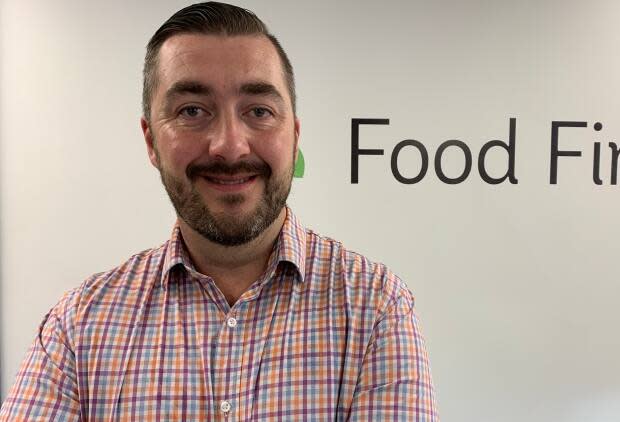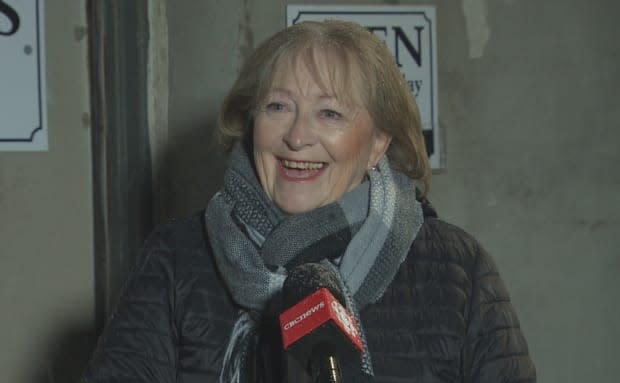Lockdown sends calls to Community Food Helpline soaring


With the shift back to pandemic lockdown, Newfoundland and Labrador's Community Food Helpline is experiencing a surge in call from people in need of emergency food aid but face barriers to getting it.
Alison Bennett, who staffs the line, says the past couple of weeks there have been a lot of first-time callers, many of whom are calling because of issues specific to the lockdown.
"We've actually been getting a lot of calls from single parents in the metro area who had relied on breakfast programs or lunch programs and now have to find two other meals a day to feed their kids," said Bennett.
Before the lockdown, a big day for the line was 10 calls, said Bennett, but in recent weeks there have been days when the line has received 100 calls from a range of people needing help.
"I get people under the age of 18, I get young families, I get single parents, I get seniors or people who were doing really well in life and then COVID struck and now they're just needing that little bit of extra help," said Bennett.
The Community Food Helpline started in May as a way to better connect the province's food banks and programs with people in need of emergency food aid. The line is operated by the non-profit Food First NL in partnership with the Jimmy Pratt Foundation. It also provides direct help in the form of hampers, grocery cards and arranging delivery of food aid.

This winter, about 60 percent of calls to the line have requested a delivery of some form, whether that's a gift card, hamper or hot meal, said Bennett.
"Anxiety is high due to COVID and the variant. People are nervous to leave their homes and delivery is a necessity."
The current call volume means the line is operating on a voicemail-only system. People are being contacted based on time passed and urgency, with responses taking three or four business days, and Food First NL is hiring another person to staff the line because of the high rates of calls.
Echoes of the spring
At the start of the pandemic some food banks had to close their doors as the volunteer base of mainly elderly people largely vanished over health concerns.
But with lower case numbers, more understanding of COVID-19 and the use of personal protective equipment, food banks reopened and found pandemic-friendly ways to operate.
Food First NL CEO Josh Smee says the onset of the new virus variant is reminiscent of last March.
"I think there's definitely some similarities. So we have heard from a couple of programs that have had to close, either because they're short on people or because they have someone in their network of employees and volunteers who might be self-isolating," said Smee.
His says that services seem to be holding on but there is some risk to the system right now.

The downtown St. John's food bank Emmaus House is a case in point.
In a recent CBC interview, chair Susan Halley said there was a scramble to make sure volunteers were in place when the province shifted to Alert Level 5, because some volunteers didn't feel comfortable leaving their home bubbles to work at the food bank.
Halley said the plan is to assess operations weekly.
"If we can't stay open five days a week, we can actually reduce it to maybe less days and even for a longer period open for the public," she said. "We still want to be open."
Smee said anyone who wants to contact the Community Food Helpline should call 211 and indicate they need food help support, or call 709-703-4544 directly.
People can also reach the line by calling 811, the provincial health line, but wait times on the line have been longer on the line with an increase of people booking COVID-19 testing appointments.

